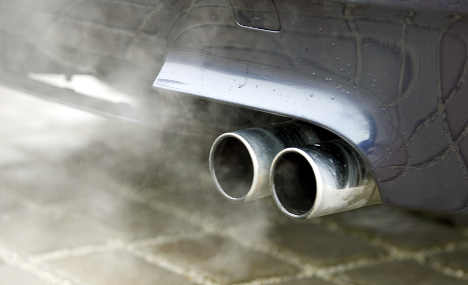The letter, seen by the Frankfurter Allgemeine Zeitung (FAZ), is dated May 8th and argues that the plan will cripple the German car industry.
“Dear Angela,” VDA president Matthias Wissman begins. “We cannot allow our powerful and strong premium sector, accounting for almost 60 percent of car manufacturing jobs in Germany to be regulated to death by arbitrary limits.”
In July of last year, the EU commission introduced draft regulation on CO2 emissions, which environment ministers from member states are due to finalize at their next meeting.
According to the FAZ, CO2 emissions in new vehicles are to be no higher than about 95 grams per kilometre by 2020, with that figure to fall to between 68 and 78 grams by 2025.
The new limits will have a greater effect on German manufacturers Audi, BMW and Mercedes than on competitors Fiat, Toyota and Ford, which produce cheaper, lighter models which consume less fuel.
The VDA is demanding “special credit” for producing environmentally-friendly electric cars, which it proposes could be exchanged for the right to continue manufacturing heavier models with higher CO2 emissions. It is also calling for a “reliable system” for measuring CO2 output.
Wissman does not just enjoy an epistolary relationship with the German chancellor, he formerly served alongside Merkel as a cabinet member in Helmut Kohl’s government.
The Local/kkf



 Please whitelist us to continue reading.
Please whitelist us to continue reading.
Member comments